Guest Author: Tim Pirrone
In life and in business, failure is inevitable. Whether you could have parented your child differently in a certain situation or handled challenges at work better, failure is just around the corner, and you should welcome it.
Successful professionals don’t rise through the ranks because everything is handed to them on a silver platter. I would argue that the most successful people face the most challenges or failures, and that is the most likely root of their upward trajectory.
I’m not saying that failure is the only thing that allows one to grow their career, but I do believe it teaches the biggest lesson. A lesson derived from failure is ingrained forever, unlike a lesson that is learned through—what I like to call—lucky success. Personally, I would rather have the ingrained lessons that have helped me advance my career as a permanent part of my skill set. Bring on some failure!
That said, I firmly believe that one of the main reasons people don’t advance professionally is simple: They don’t know how to handle failure and have never learned to fail forward. I’m not suggesting this is any one person’s fault—maybe no one ever allowed them to fail. Maybe they were sheltered from the ugly parts of life and were always told, no matter what, that they did a great job.
Now, if learning how to fail forward were easy, everyone would do it. To embrace this concept, you’ll have to thicken your skin, leave your ego out of the equation and prepare to work outside of your day job—on YOU.
Failure can be as small as not having a successful sales month or as large as being demoted or losing your job. Most people have the same common reaction to failure: “It’s not me, it’s X.” This is why most employees don’t have a flourishing career with an upward trajectory.
Self-pity is an easy way out. If you’re serious about your career, I would advise you to take the road less traveled. That road means pointing your finger in the mirror and really getting to know who you are. You need to be honest with yourself about what skills you actually have and what skills you’re lacking. News flash—your failure could be your own doing.
Reflecting inward, especially when a failure has just kicked you in the gut, is no simple task. Human nature drives us to find out why something happened and how to position it or prove that it wasn’t our fault. Throw that concept in the trash and get real with YOU. When you do this, you’ll come to realize that the reason the failure occurred is either because of a skill you lack or because you don’t understand the person you really are.
There are so many ways to develop personal and professional skills, but the people not succeeding professionally typically don’t want to take the time to invest in themselves and put forth the massive amount of work that goes into self-development.
Let Me Give You a Real-Life Example or Two
Twice in my career, I have been demoted. In one instance, I was demoted from a sales leadership role to a sales rep role. In the other instance, I was removed from an executive leadership role and placed in a role that was more director level (overseeing managers vs. the entire department). Although these demotions occurred at different points in my career, both were a professional punch to the gut.
Failure #1: From Sales Manager to Sales Rep
Let’s take a look at the first example when I went from a sales manager to a sales rep. This took place in an industry that I spent more than six years in—about two-and-a-half years as a sales rep and three-and-a-half years in management. The industry was very fast paced and cutthroat because of how much money a young professional could make annually.
The best way I can describe it is to take Wolf of Wall Street and The Big Short and mash them together—and, man, was it fun! I doubled my income every year for almost four years until the stock market crashed in July 2007. At that point, the company I worked for was the only U.S. branch for a London-based superpower, and that superpower decided it didn’t want anything to do with what was going on over on American soil. In an instant—a business instant of six months or so—we were downsizing.
At this point, I was a sales manager, and I witnessed four rounds of layoffs, each one as heartbreaking as the first. I saw grown adults carrying their belongings to their cars with tears rolling down their faces and asking questions aloud, like “What am I going to tell my wife?” or “How am I going to support my family?” That wasn’t easy to absorb.
In any case, there eventually came a point where the sales staff was so depleted that there was no need for as many sales managers as we had. All of us saw the writing on the wall. One of us was going to get demoted in the next round of moves, and we knew that one of two things was going to happen with the company. It would either close down, completely laying everyone off, or it would survive as a much smaller organization running leaner and tighter.
When the day of reckoning was upon us, we knew that whoever was going to be demoted would be met at the door as they arrived to work that morning. Unfortunately, I didn’t walk into work unscathed.
The conversation with my boss, who I had an impeccable relationship with, went fine, as I’m sure he hoped it would. I was pretty mature for my age and smart enough to mentally prepare for something I knew could go down. I did, however, spend the majority of that discussion talking to my boss about why I was selected instead of any of the other 14 sales managers. I got some boilerplate responses: I was the newest, so it was a last-in, first-out type of thing. But I also got some responses that I felt were more honest: The other managers had fewer holes in their game than I did.
I’m not going to lie—I spent a good 15 minutes in my own head thinking of some not-so-nice things I could say about each of my manager peers and how I was better than they were, but I bit my tongue.
That moment was when I learned that I have a unique ability to slow thought down and process tough news rapidly. I knew very quickly that the only way I could make money for my family was to put my ego aside, get a cube, find a phone, dial like mad and start selling. So, that’s what I requested from my boss. I was a sales manager that not only led the way but also lived the way with my squad. My sales skills were still sharp, and I knew I could make it happen.
However, it still didn’t sit well with my ego. Having to dial the phone while sitting next to someone who reported to you 24 hours ago is not an easy thing to do. Add that to the fact that I was still wrestling with the “why me?” behind the demotion, and it was imperative that I figure out a way to come to grips and get after making money for my loved ones. That was when I focused inward. If the higher-ups were stack-ranking the management team to determine who had the most holes, I wanted to make sure I was never at the bottom again.
I got real with myself and started to understand my strengths and weaknesses. I analyzed myself and determined if I wanted to fix my weaknesses and hone my strengths or give up because it was just too damn hard. As you’ve likely figured out, I didn’t give up, but we’ll have to save the process of my analysis and what I did for a separate article. Suffice to say, in four months of selling, I became the number one seller in the company, and we pivoted our product offerings, allowing the company to make it through, for now! In month six as a sales rep, I was given the opportunity to manage sellers again.
Although the company eventually did close down, being promoted back to sales leadership was a critical moment in my career. Why? Because it allowed me to look for work as a sales leader instead of as a sales rep, and we were given a severance that was an average of our last three months of commissions and our salary. I destroyed commissions as a seller over my past three months, and adding that to the manager base pay that was more than double the sales rep base pay made my severance pretty sweet.
My ability to fail forward allowed me to keep my career in growth mode as I looked for work, but also made me financially stable, so I had time to vet out future opportunities and not make rash decisions about the next move in my career.
Failure #2: From Vice President of Sales to Operations Manager
On to example number two. This failure had the most significant professional impact on me. As the vice president of sales at a startup, my task was to grow a sales division that exceeded budget expectations and then some.
My first three months in the role were challenging, to say the least. We had staffing issues, product issues and customer service issues, as well as problems with the go-to marketing strategy we wanted to utilize. We had established monthly sales goals that not one sales rep was achieving. Morale was down, and the culture was suffering because of it. Anyone who tells you their culture is great even when no one is winning is lying.
To create a great culture, you have to be winning and succeeding! Unfortunately, this startup was not in that position. At the end of my third month, I was told that month four had to show signs of improvement.
Fast forward to the middle of that fourth month and things seemed to be moving in the right direction—and trust me when I say any shortfall was not due to lack of effort. Although things were turning around, it wasn’t happening fast enough for the powers that be, and understandably so. I’ve never been one to begrudge business decisions—I understand why companies sometimes have to make changes. In this case, the change was removing me from my vice president of sales role and bringing in someone who, in the company’s view, was more qualified to get the job done.
Fortunately for me, removing me from my sales role did not entail removing me from the company. We were having major operational challenges, and I had plenty of operations experience, so they offered me a role overseeing our service side and fixing the client retention challenges they were facing. Yes, this came with a pay cut. Yes, this presented challenges similar to those in my first example when it came to my ego, but it was still a good offer and an important role in the organization. I had a choice to make, but, for me, it was a pretty easy choice. I believed in the business we were running and knew that it would be a home run if we got it moving in the right direction.
Come to find out, I was a much better operational leader than I was a sales leader. On top of that, I realized that by not putting my tail between my legs or letting my ego get in the way and pointing my finger (which would have been easier to do), I hadn’t fought for the strategy I believed in while in sales. Rather, I went along with someone else’s decisions. This is, again, a skill gap I needed to hone through self-reflection and self-development.
I made the choice to take the operations role and make it a driving force in the company—a force that would retain customers at an unheard-of rate. With a ton of self-reflection, a ton of self-development and a ton of mastering my craft, I achieved my goal of creating a department that drove success. Within a six-month period, we reduced our monthly client churn rate by 70% and grew our operations team from a handful of folks to over 40 employees—and you can imagine what this did for the company’s revenue.
Failing Forward Works—If You Can Handle the Work That Comes With It
This wouldn’t have happened if I’d blamed others during my time of adversity. This wouldn’t have happened if I hadn’t put my ego aside during my time of failure. This wouldn’t have happened if I’d flat out given up on ME. I am my biggest asset, and, in life, you can learn your lessons and invest in your skills, or you can take the easy road.
My failure put me in a position to learn more skills to add to my constantly evolving skill set and prepared me for a career opportunity that I didn’t see coming. I preach to my staff that practicing self-development, staying in your lane and mastering your existing role will do three things:
- Help you make fewer mistakes and avoid failure in your existing role.
- Help you become a better leader for the people relying on you.
- Help you be prepared to take advantage when opportunity strikes.
I took advantage of it, trusted in my vision and surrounded myself with good people. I remained focused on solutions, positive in my attitude and gracious in my demeanor—and that helped me build one hell of a business. It worked for me, and I know it can work for you, too.

Tim grew up in Buffalo, NY and attended Canisius College, where he played baseball and earned a BS in mathematics. After working in the mortgage industry and the corporate world, he was ready for a change. Almost a decade ago, he leaped into digital marketing, relying on his sales background and ability to lead, and failed forward to become the president and general manager of Townsquare Interactive.
Outside of work, Tim enjoys spending time with his wife and two beautiful girls, running, cheering on the Cubs and schooling people about ’90s rap. Tim and his wife sponsor kids through Children’s International and World Vision and are heavily involved in Charlotte Youth Ballet.






